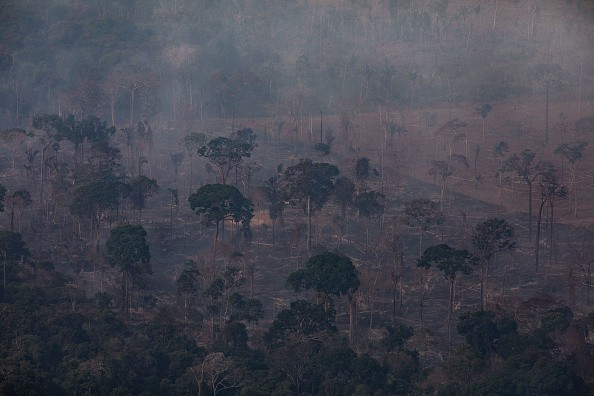A consortium led by two Oregon State University academics says the revised vital indicators "primarily reflect the implications of persistent business as usual," 20 months after declaring a climate emergency and developing a set of vital signals for the Earth.

In a study published in BioScience, authors led by OSU's William Ripple and Christopher Wolf argue for a phase-out of fossil fuels in response to the climate problem. They also seek strategic climate reserves for carbon storage and biodiversity conservation, as well as a global carbon price high enough to encourage "decarbonization" throughout the industrial and consumer spectrum.
Worsening Environmental Phenomena

According to scientists, climate-related calamities have increased at an unprecedented rate since 2019, according to scientists, including disastrous floods, record-breaking heat waves, and extreme storms and wildfires.
"There is mounting evidence that we are approaching or have already passed tipping points associated with key components of the Earth system, such as warm-water coral reefs, the Amazon rainforest, and the West Antarctic and Greenland ice sheets," said Ripple, a distinguished professor of ecology at Oregon State University's College of Forestry.
Warmest Years on Record

The five warmest years on record have all occurred after 2015, making 2020 the second hottest year on record. In addition, atmospheric concentrations of three main greenhouse gases - carbon dioxide, methane, and nitrous oxide - hit new records in 2020 and 2021.
The highest monthly worldwide average carbon dioxide concentration ever measured was 416 parts per million in April 2021.
Related Article : Multiple Factors for Environmental Tipping Point Reach Critical Levels
Perceiving the Climate Crisis

"Immediate, substantial reductions in greenhouse emissions, notably methane," Wolf, a postdoctoral fellow in the College of Forestry, stated.
"We also need to stop addressing the climate emergency as if it were a one-off problem - global warming isn't the only symptom of our strained Earth system," Ripple added. "Policies aimed at addressing the climate catastrophe or any other symptom should focus on the fundamental cause: human overexploitation of the earth."
Post-Pandemic

The COVID-19 pandemic, with its numerous economic disruptions and shutdowns, had the unintended consequence of delivering some climate crisis alleviation, but only of the transitory type, according to the experts.
"Global GDP fell by 3.6 percent in 2020 but is expected to return to an all-time high in 2021," Ripple added. "Fossil fuel use, carbon dioxide emissions, and airline travel have all decreased since 2019, owing to the epidemic. With the liberalization of the economy, all of these are projected to increase considerably."
Significant Changes

"Attempted solutions will simply transfer the strain as long as humanity's impact on the Earth system persists," Wolf added. "However, by preventing the wasteful exploitation of natural ecosystems, we can simultaneously lower the danger of zoonotic disease spread, safeguard carbon supplies, and conserve biodiversity."
"All climate measures should prioritize social justice by eliminating inequality and putting fundamental human necessities first," Ripple added. "As well, climate change education should be integrated into school core curriculums across the world, resulting in increased knowledge of the climate emergency and the empowerment of learners to act."
For more environmental news, don't forget to follow Nature World News!
© 2025 NatureWorldNews.com All rights reserved. Do not reproduce without permission.





